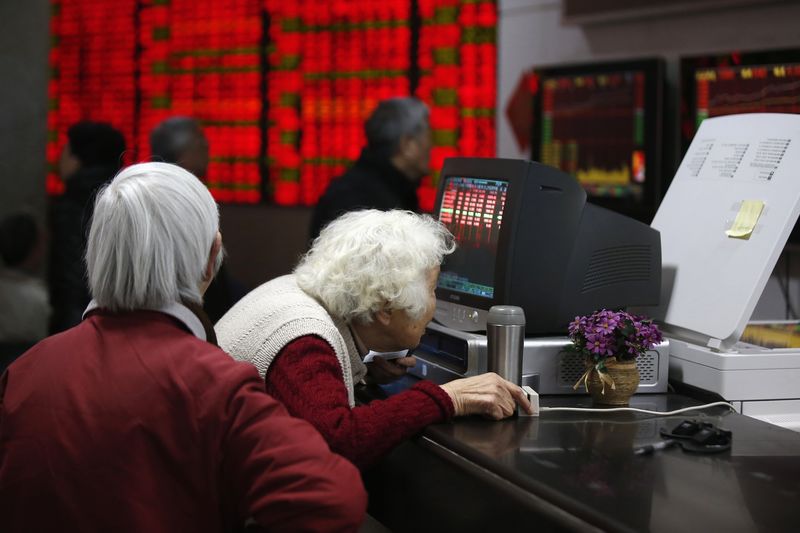Investing.com – Asian markets extended losses in afternoon trade on Thursday, with China’s stock markets down more 3% amid renewed trade war fears.
Higher U.S. tariffs on Chinese imports now look increasingly likely after U.S. Trade Representative Robert Lighthizer confirmed President Donald Trump is considering a higher 25% tariff on $200 billion worth of Chinese goods because China refused to meet U.S. demands. Trump previously said U.S. could eventually impose tariffs on all U.S. imports from China.
The Shanghai Composite and the Shenzhen Component dove further in the afternoon trading session and were down 3.1% and 3.7% by 1:30AM ET (05:30 GMT). Hong Kong’s Hang Seng Index was also down 2.7%.
"China's top policy makers are clearly concerned about two issues: the sharp slowdown of credit growth and the uncertainty due to the trade war," Macquarie economists Larry Hu and Irene Wu wrote in a note.
China accused the U.S. of blackmailing following reports of higher tariffs and said it would hit back if further steps hindering trade were taken.
"U.S. pressure and blackmail won't have an effect. If the United States takes further escalatory steps, China will inevitably take countermeasures and we will resolutely protect our legitimate rights," Chinese Foreign Ministry spokesman Geng Shuang told a regular news briefing.
Meanwhile, Starbucks (NASDAQ:SBUX) Corp made headlines in Asia after the company announced its plan to partner with Alibaba to deliver its coffee in Chinese cities including Beijing and Shanghai.
The two companies said in a joint statement that their delivery services would begin in September and is planning to expand its service to more than 2,000 stores across 30 Chinese cities by the end of 2018.
"We quickly saw that here is a world class technology company ... that's focused on retail and modern day retail," Starbucks Chief Executive Kevin Johnson told reporters in Shanghai.
"I consider this strategic partnership to be one that ... will just be rocket fuel for Starbucks' growth and continued expansion in China," he said.
Elsewhere, the Fed left interest rates unchanged following a two-day policy meeting, as widely expected. The central bank then upgraded its view on the economy.
The committee said it expects that “further gradual increases in the target range for the federal funds rate will be consistent with sustained expansion of economic activity, strong labor market conditions, and inflation near the committee’s symmetric 2 percent objective.”
Japan’s Nikkei 225 traded 1.2% lower. Bank of Japan (BOJ) Deputy Governor Masayoshi Amamiya said on Thursday the BOJ would purchase government bonds "promptly and appropriately" if yields continue to rise.
His comments came as Japanese bond yields hit a 1-1/2-year high on Thursday.
Down under, Australia’s S&P/ASX 200 slipped 0.4%. Major mining companies underperformed after Rio Tinto Ltd (AX:RIO) reported lower-than-expected first half profit. The company also announced plans to buy back an additional $1 billion in shares.
